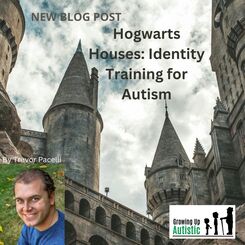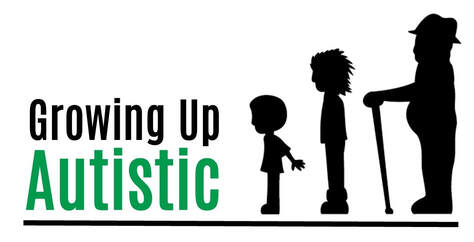 Photo by cant on Unsplash Photo by cant on Unsplash Like other twenty- and thirty-somethings, I grew up watching the Harry Potter series. Every kid around my age was all over the books and movies from grade school through high school. The first movie premiered when I was in third grade, and the last one premiered the summer after I graduated from high school. Each of these eight films was a massive theatrical event, so the series heavily influenced the childhoods of my generation. I believe one of the key reasons the books and movies have been so influential is the way author J.K. Rowling defines the characters, all of which are broken up into four houses at Hogwarts’ School of Witchcraft and Wizardry: Gryffindor, where brave students are sorted into. Hufflepuff, where loyal students are sorted into. Ravenclaw, where intelligent students are sorted into. Slytherin, where power-hungry students are sorted into. In Harry Potter’s first year at Hogwarts, the sorting hat is put on his head, and it struggles to decide where exactly he would be best suited. Although he requests Gryffindor, it’s later revealed that Harry, having almost been killed by the evil Lord Voldemort (a Slytherin) as a baby, still has a piece of Voldemort’s soul inside his body. Thus, Harry would be a better fit for Slytherin. Yet that doesn’t mean he’s not courageous, because he never hesitates to stand up for what he knows is right, even if it means going face-to-face with death more than once. Harry’s not the only one who has personal traits of more than one Hogwarts house. Ron Weasley is a Gryffindor, but also has immense loyalty to his family, like a Hufflepuff. Hermione Granger is a Gryffindor, but also has an encyclopedic knowledge of spells, like a Ravenclaw. Draco Malfoy is a Slytherin, but also isn’t afraid to put his safety in danger to get his way, like a Gryffindor. There are many online quizzes you can take that tell you which Hogwarts house you would best fit into. But playing this game for you or a friend doesn’t have to be done by a questionnaire. You could simply observe someone and take note of their actions and personality. That brings me to my main point: Fantasy worlds and special interests can help those on the autism spectrum. Here’s what I mean. Most people in a casual setting can pretty easily know the unspoken signs of another’s personality by watching them. They don’t need the personality traits spelled out for them—reading the room is second nature. People with autism don’t usually have that. They can’t tell what another person’s intentions or thoughts are simply by watching them; they need to be told directly if someone is being disrespectful or manipulative. Someone on the autism spectrum might not relate to other people very well, but they can relate to their special interest extraordinarily well. This can include any fictional fantasy world with a fanbase, such as Star Wars, Pokémon, The Lord of the Rings, or Harry Potter. The latter of these examples can help with the use of the four Hogwarts houses. Somebody with autism could take on the task of figuring out which Hogwarts house they think a friend or family member would best belong in. It could turn into a fun game of detective work where the person with autism has to carefully think about the other person to decide whether they have more traits of a Gryffindor, Hufflepuff, Ravenclaw, or Slytherin. This in turn could encourage social interaction between that autistic person and the one they’re trying to place in a house. While using others for your own game could sound questionable, it may be the best motivation for autistic people to think more about what others are like. I suffer from anxiety, so I’m not a Gryffindor. I couldn’t manipulate people even if I tried, and I’m relatively content with where I am in life, so I’m not a Slytherin either. However, I do have hints of Hufflepuff because I’ve proven myself to be a hard and loyal worker. Yet because I’m dependent on my creative mind in work and in hobbies, I’m the best fit for Ravenclaw. In thinking of others, I know a church pastor who has been immensely courageous amidst the challenges he’s faced, and while he has book smarts, he’s mostly motivated by community-building and his family. Thus, he seems to be the best fit for Hufflepuff. That’s just an example of how using something an autistic person is already interested in can help develop an interest and understanding in people. But full disclaimer: This is no means to an end in getting to know people. It’s unhealthy to get overly caught up in your fantasy, especially when trying to force others into your own imagination. The exercise I described can be a great motivator, but deciding whether a friend or family member would be best for Gryffindor or Slytherin is not a permanent solution to overcoming personality blindness. When learning about one another, nothing can replace simple conversation. While there can be ways to get there based on the individual’s current strengths, human interaction with one another should always be the end goal. Trevor Pacelli is the author of Six-Word Lessons on Growing Up Autistic, What Movies Can Teach Us About Disabilities and other books on Amazon.
0 Comments
|
Inspiration for Life with AutismThis blog has a variety of articles about people living life with autism, and topics and ideas that can help in the journey. Guest bloggers are welcome. Inspired by Trevor, a young adult film critic, photographer and college graduate on the autism spectrum. Categories
All
Archives
July 2024
|
Proudly powered by Weebly

 RSS Feed
RSS Feed